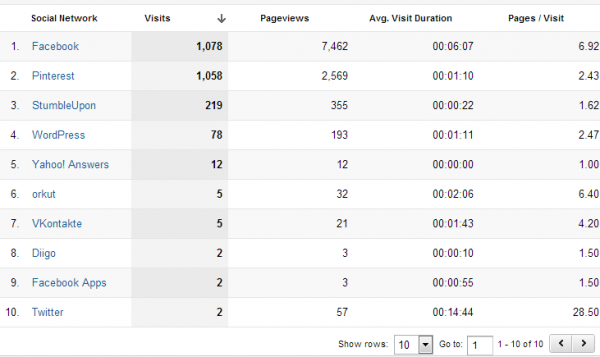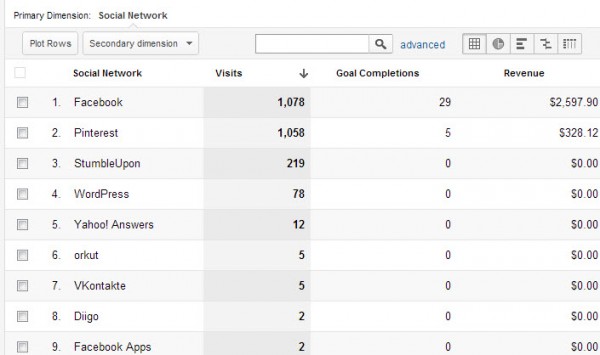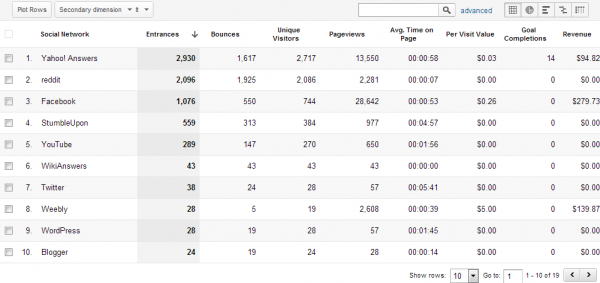Reporting On Social Media Engagement
I was in this industry when people were starting to throw around the phrase Web 2.0. Video marketing was in its infancy, Facebook was only for college students, and MySpace was where you sold things to a 12-year-old. Along with my time in the industry, social media has grown from a conversation we had with […]
I was in this industry when people were starting to throw around the phrase Web 2.0. Video marketing was in its infancy, Facebook was only for college students, and MySpace was where you sold things to a 12-year-old. Along with my time in the industry, social media has grown from a conversation we had with clients, but didn’t really worry about, to an intensely competitive and important form of marketing.
As we traveled through the lifespan of social media marketing to date, we heard and said a bunch of phrases like, “revenue tracking isn’t really possible here” and “your revenue is in the engagement.” A quote that has stuck with me for years is from Lee Odden of Top Rank Marketing. He said at a PubCon about 5 years ago, “You don’t ask the phone company to report on the ROI of your telephone.”
From my perspective, I think Social Media serves multiple purposes in a business plan. It allows an easy and public form of customer service communication. This can be an invaluable asset to a business.
Social Media: Ubiquitous & Measurable
It has become widespread, and almost expected, that a company have a Facebook or Twitter page. Comcast empowers its customer service agents to keep in touch with consumers. Dell works to keep in contact with clients via Twitter and Facebook. Many brands online will give a consumer with an issue a way to contact a person that can help them resolve their problems. Consumers now expect to have this avenue of communication.
Social media is also a format to engage in push or pull marketing. You can push your products and ideas out to many people via very robust targeting options, or pull consumers into you concepts and products based on engagement and explanations within the platform. If we look at it from the 10,000 foot view, social media meets a lot of marketing needs on one platform, something most other platforms can’t boast.
Measuring engagement and revenue has historically been a real pain when it comes to social media campaigns. In the last few years, analytics platforms have done more to make these features available, but it’s still not as simple as revenue tracking from a PPC ad or an organic listing. There are some custom reports and filters that can make your life easier, and the platforms themselves are developing easier-to-use reporting features as well.
Custom Reports – Revenue
I use a few custom reports that make my life easier in understanding social media’s impact on my clients’ sites. One I found recently takes the Google Analytics Social Report and pulls together goal completion and revenue data for each social network. You can, of course, pull this data from the standard reporting with some clicks and filters, but what I like about the custom report is having it at my fingertips, which I can then easily add to my Analytics dashboard.
I found this on my go-to site CustomReportSharing.com. and it was shared by the amazing Annie Cushing. This report – simply called the “Social Networks Report” – can be installed by clicking on the link and choosing which analytics profile you’re working with. Here are the differences:
Standard Social Networks Report:
Custom Social Networks Report:
Custom Reports – Engagement
Measuring engagement from social media is also an important tool. With some brands and tactics, social media visits can incite a higher bounce rate than a normal organic or PPC click. Understanding that this is happening, and why it is happening is important.
Here’s the crux of the issue – to get Google Analytics to track Social Engagement with more in-depth data, you need to do some fancy coding within your analytics script. This isn’t always within our skillset, or ability – so how do we solve this problem? I built a very simple, but easy to implement custom report that will show engagement data only from social sources. I basically took Avinash Kaushik’s Page Efficiency Analysis Report, revamped it for social networks, and included revenue and adjusted goal completion metrics.
I call this the Social Engagement a la AK Report (click on the link to add it to your Analytics custom reports).
The benefit here is to see the data that matters to me. You can edit this custom report to include the metrics that are most important to you!
Get Onboard With Social Networking
I think it’s time, if you haven’t already embraced it, to get on board with social networking. Many who read this will be pros, but many may not have even started down the road. This is for those who just aren’t sure if it’s worth the time investment. I think it’s past time; social media is not going away.
How deeply you’re involved is directly dependent upon your industry and the demands of your audience, but we’re even seeing healthcare information discovery shift to social media, which is a highly personal and private niche – and it’s moving to embrace social media very quickly. In the new year, take a look at your strategy and use these reports to make adjustments and gather information about how well social media has, and can, work for you.
Contributing authors are invited to create content for Search Engine Land and are chosen for their expertise and contribution to the search community. Our contributors work under the oversight of the editorial staff and contributions are checked for quality and relevance to our readers. The opinions they express are their own.
Related stories
New on Search Engine Land


